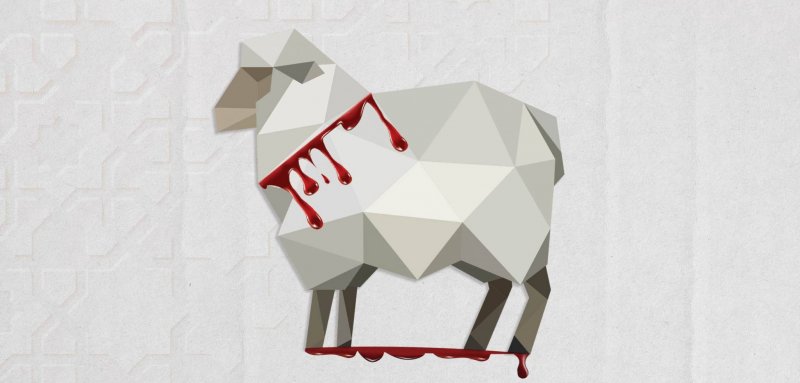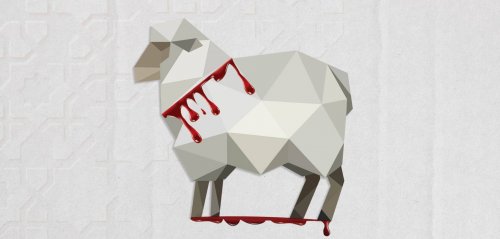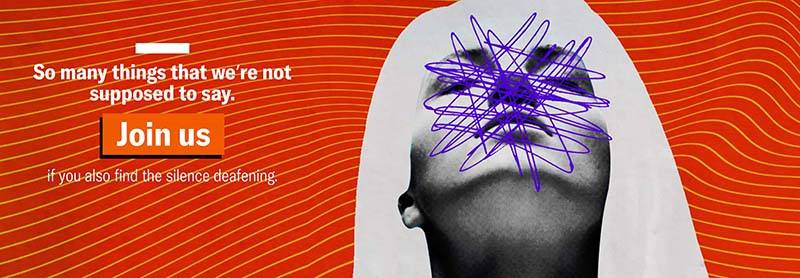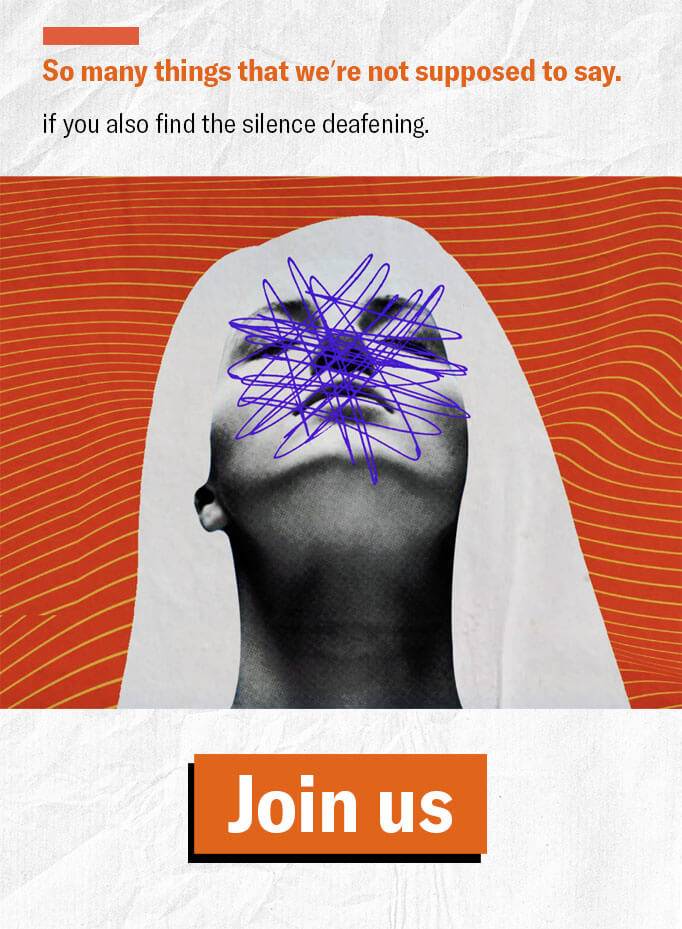Eid al-Adha is right around the corner, and here we are waiting for it. Perhaps it will bring us a little bit of joy, especially since it’s a happy day that children and adults eagerly await. They are all ready for its arrival. Perhaps it will be able to wipe off half a drop of pain from the foreheads of the poor, the wretched, and the needy. However, there are wrong habits that disturb the purity of this day. Some have even turned into rituals, and the forms of their implementation have evolved, from bad to worse. How did these phenomena manifest in the Arab street? How will it get rid of them?
Sheep Are Children’s Friends
It all begins from the rooftops of houses, when the head of the family brings a sheep that he then raises and his children play with. They watch it grow with them day after day, feeding it and giving it water. The father cautions them against beating or torturing it, and so the sheep here becomes a friend of the family, rather than just a guest. The children then become extremely attached to it. As soon as Eid arrives, the father takes it to the slaughterhouse along with his children, so that they can witness its slaughter, thinking that the young child witnessing the sacrifice will turn him into a strong man. He does not know that such scenes may turn his child into a weak person, mentally shaken, afraid of seeing blood, or afraid of eating meat. His memories of Eid take him to that scene in which he saw his friend the sheep drowning in its own blood.
This may seem very dangerous behavior for the same child who sees his friend the sheep as blood oozes out of its neck. How will this child’s behavior be in the future? What are the reasons that lead us, out of ignorance, to breed and nurture violence within the hearts of children? Didn’t any person of sound logic think that a child storing the image he sees during the slaughter in his mind is inconsistent with humanitarian standards? It’s enough for the child to be involved in the process of handing out the sacrifice to the people, since seeing people smile in front of him when he gives them a gift, is a thousand times better than seeing an animal being slaughtered in front of him.
Children become extremely attached to sheep. As soon as Eid arrives, the father takes it to the slaughterhouse along with his children, so they can witness its slaughter, thinking that witnessing the sacrifice will turn boys into a strong men
Smearing Houses With Blood
Muslims prefer to experience the atmosphere of Eid al-Adha celebrations in the midst of family gatherings, not only when it comes to visiting relatives, but also during the ritual of sacrifice. Some prefer to slaughter their sacrifice according to their inherited ritual; with the participation of their family members. That is why some perform the slaughter in front of their house, or inside it. What is worse is when they perform the slaughter on street corners, leaving residential neighborhoods filled with foul smells that emanate from the pools of blood and the remains of the sacrifices. Despite the negative consequences of these rituals, they are still being carried out until now.
It is a pity that they do not realize the extent of the environmental issues that may come about as a result of these irresponsible actions. They harm the civilized and cultural landscape of the streets, especially in public squares, which are an outpost for the waste of sacrifices, thus becoming a melting pot for insects to gather in, and from which diseases are transmitted to people.
The Phobia of Envy and Eid
The “phobia of envy” is one of the popular beliefs that come from a religious nature. Although there is no link between it and the rituals of Eid celebrations, some people embody the concept when they dip their hands in the blood of the sacrifice, and then mark the walls of their homes and cars, thinking that this distorted ritual will protect them from the ‘eyes’ of envious people.
Many dermatology doctors specializing in the treatment of skin diseases have talked about the many risks that may take place with children in particular when they touch the fur of sheep.
It contains a fungus that may infect young children with diseases. Germs and microbes, also usually present in the area of slaughter, spread even more as a result of hands being dipped in blood, and result in diseases such as fish-eye disease and brucellosis. In consequence, children are greatly exposed to both psychological and health risks from these sacrificial slaughter rituals. The greatest responsibility falls on the shoulders of fathers who throw their children into harm’s way, led on by that same dark ignorance.
Torturing the Sacrifice before Slaughter
Ignorance can cause wrong behavior to take place, as long as they are being carried out by individuals. But is it possible that ignorance may also be behind heartlessness? I denounce the actions that some practice before the slaughter of the sacrifice, such as piercing the calf’s leg with a knife before slaughtering it, so that he could weaken its strength and would be able to slaughter it. Why do we harm an innocent soul so cruelly?
With technological advancements and the spread of smartphones, sharing the rituals of Eid al-Adha celebrations has become one of the new expressions being displayed on social media sites. Muslims take photos with the sacrifices, especially during the act itself, as well as taking pictures of bloodied hands. They then brag about the pools of blood spilled in the streets, embodying a new form of psychological harm to the users of these sites. Are you not presenting these sacrifices as an offering to your God? So, why do you post pictures of your sacrifices to the worshippers instead? Didn’t God command you to hide your good deeds, so well that your right hand does not know what the left hand does? Did you not know that there are people who consider cows as deities? Shouldn’t we respect the beliefs of others? Did you ever experience the feeling of another person seeing the deity he worships being slaughtered by people during their feasts, as they rejoice at the sight of its blood, and take pictures of it?
They dip their hands in the blood of the Sacrifice, and then mark the walls of their homes and cars, thinking that this distorted ritual will protect them from the evil ‘eye’
Why Do We Eat Sheep During Eid?
When I looked for the reasons why Islam forbids eating the meat of pigs, I found some views stating that a pig’s lack of jealousy over its wife is the reason for its prohibition! While another view says: Because pigs eat trash and garbage, and may transmit diseases to humans. I am amazed when I see people letting their sheep eat from mounds of trash and garbage. Has this dangerous trash now become useful for Egyptian sheep? I used to see such scenes in the popular neighborhoods of Cairo and Giza, while they gradually disappeared in Upper Egypt. I think that this stems from the behavior of the individuals themselves. The people of simple villages and the countryside are more concerned with the well-being of the animals that live in their barns. That is why they do not let them eat from the garbage, and do not neglect caring for them. But the scene is quite different in urban areas. If goats and sheep, like pigs, eat from garbage, what is the difference between them then? And why isn't pork offered as a sacrifice?
I Miss Eid
During the days of Eid al-Adha, no Muslim house can go without meat. Just like certain foods enter our social celebrations and become an integral part of them. For example, on Eid al-Fitr, we make biscuits. During Easter, we eat fish and eggs. I marvel at those who spend all the days of Eid making dishes only of meat, and at those who feel as if Eid has not arrived if they do not eat some meat. The meat dish became the Eid, instead of that beautiful day when hearts forgive one another, and people start a new page with life, forgetting the past, and preparing for a better tomorrow.
I remember the Eid when I was a young child at the age of nine. I put on my new clothes, and wake up with the takbir of dawn (call to prayer). I stand on the balcony of our house, and wait for my friends to arrive, so that we all go visit our relatives to celebrate Eid with them, eat sweets with them, and then take souvenir photos in the photography studio. This was before the spread of mobile phones, and before Eid had become mere posts on Facebook and messages on WhatsApp.
*The views and opinions expressed in this article are those of the author’s and do not necessarily reflect the official policy or position of Raseef22
Raseef22 is a not for profit entity. Our focus is on quality journalism. Every contribution to the NasRaseef membership goes directly towards journalism production. We stand independent, not accepting corporate sponsorships, sponsored content or political funding.
Support our mission to keep Raseef22 available to all readers by clicking here!






Join the Conversation
جيسيكا ملو فالنتاين -
2 days agoجميل جدا أن تقدر كل المشاعر لأنها جميعا مهمة. شكرا على هذا المقال المشبع بالعواطف. احببت جدا خط...
Tayma Shrit -
3 days agoمدينتي التي فارقتها منذ أكثر من 10 سنين، مختلفة وغريبة جداً عمّا كانت سابقاً، للأسف.
Anonymous user -
3 days agoفوزي رياض الشاذلي: هل هناك موقع إلكتروني أو صحيفة أو مجلة في الدول العربية لا تتطرق فيها يوميا...
Anonymous user -
3 days agoاهم نتيجة للرد الايراني الذي أعلنه قبل ساعات قبل حدوثه ، والذي كان لاينوي فيه احداث أضرار...
Samah Al Jundi-Pfaff -
5 days agoأرسل لك بعضا من الألفة من مدينة ألمانية صغيرة... تابعي الكتابة ونشر الألفة
Samah Al Jundi-Pfaff -
5 days agoاللاذقية وأسرارها وقصصها .... هل من مزيد؟ بالانتظار